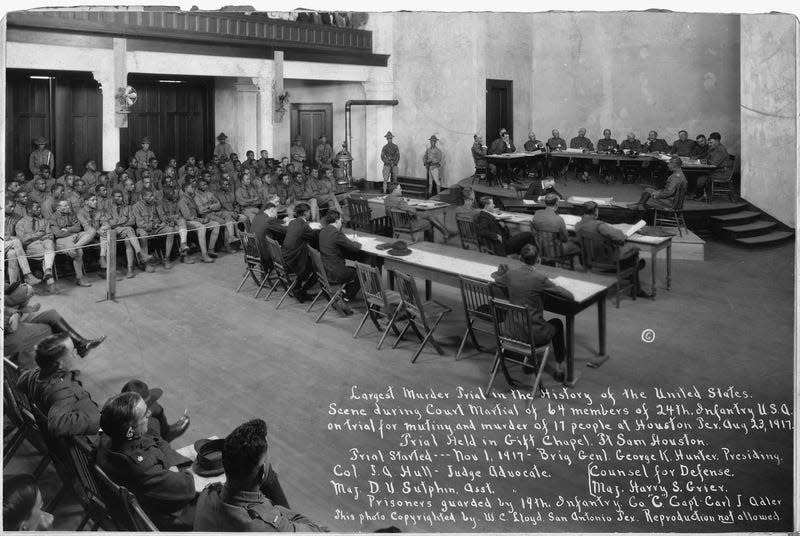U.S. Army Makes Historical Move in Nation's Largest Murder Trial

In 1917, Cpl. Jesse Moore was one of the 110 Black soldiers dragged into what’s now considered the nation’s largest murder trial. His great-niece vowed to prove his innocence and that of his fellow soldiers...finally achieving her goal with the U.S. Army’s latest decision to overturn all 110 the convictions.
When the all-Black 24th Infantry Regiment arrived in Houston in July 1917, they were given the false promise that their presence would be welcomed by the white soldiers, per Prairie View A&M University. Jim Crow laws brewed tensions between the black and white soldiers. Those tensions finally sparked a conflict the following month with rumors that a corporal from the 24th was murdered by the police and that a white mob was headed toward the camp.
Read more
'I Hope It Bankrupts Them': Las Vegas Residents Enraged Ahead Of Formula 1 Grand Prix
Billie Eilish addresses and clears up speculation about her sexuality
Ryan Tannehill’s 'support' for young Titans quarterbacks depends on if they’re white
“I remember going to each tombstone and saying, ‘I’m going to do something. The wheels of justice turn. They turn slowly, but they do turn.’ With this decision, the promise has been kept. It’s been a lifelong mission for me. It can’t bring them back, but it gives them peace,” said Holder via the Houston Chronicle.
Read more from the Houston Chronicle:
Jason Holt, a New Jersey lawyer and descendant of Pfc. Thomas C. Hawkins, who was executed, likens sending Black soldiers into a southern town to waving a red flag
Holder submitted the original petition, a posthumous pardon request, through the Department of Justice in 2017, but that document only addressed the first 13 men who were executed. Much of her case was based on a presentation between Fred Borch, one of the few people publicly discussing Camp Logan at the time, and then South Texas College of Law Houston professor Geoffrey Corn. Corn took an interest in Holder. Within two years, he brought key players into the fold, including fellow former intelligence officer Brenner-Beck. In 2019, they presented their findings to regional NAACP representatives.
Deputy Secretary of the Army Michael Mahoney led an investigation into the incident, finding numerous flaws in how the case was handled.
“There’s no physical evidence. And eyewitness accounts, with 1917's level of outdoor electrical lighting, produced inconsistent testimony. None of the white citizens were charged or convicted of anything,” he said via the Chronicle.
Mahoney’s findings prompted the Army Review Board to recommend the convictions of all 110 soldiers be “set aside” (or vacated) and that each one be given an honorable discharge.
You know what that means? The descendants of the soldiers may now be eligible for benefits they were otherwise cheated of. The next steps forward and “corrective action” will be announced by the Army along with the launch of a website so people can identify more descendants connected to the incident.
More from The Root
Sign up for The Root's Newsletter. For the latest news, Facebook, Twitter and Instagram.

